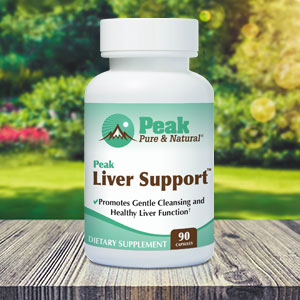Get Easy Health Digest™ in your inbox and don’t miss a thing when you subscribe today. Plus, get the free bonus report, Mother Nature’s Tips, Tricks and Remedies for Cholesterol, Blood Pressure & Blood Sugar as my way of saying welcome to the community!
What the studies got wrong about fish oil’s heart health benefits

There’s been a piece of “medical news” that’s been getting a lot of play recently.
In fact, if you Google it, you’ll get hit after hit. It’s been published in the New York Times, touted by CNN and even got a shout-out across the pond from BBC News in the UK.
So, what news am I talking about?
The supposed truth about omega-3 fish oil supplements.
Recent reports have come out saying that omega-3 supplements have little or no heart or vascular health benefits.
Does that mean that you should skip those supplements and take them out of your rotation?
Well, I’ll admit… I’m always skeptical when the benefits of natural supplements are disproven, leaving us no other option than to run back to the big pharmaceutical companies, risking the laundry list of unpleasant side effects.
So, even after reading the “latest truth”, I continued taking my omega-3s. And, let me just say, I’m glad I did…
Are your levels too low?
According to a new study published in Prostaglandins, Leukotrienes, and Essential Fatty Acids, those omega-3 supplements weren’t providing enough heart protection because fewer people were meeting the required blood level of omega-3s necessary to see benefits.
In other words, the amount needed to be cardio-protective was simply not there.
Despite the latest anti-omega-3 propaganda, pooled research data from 10 scientific studies confirmed that people with an omega-3 Index (blood level) of 8 percent or higher were 35 percent less likely to die from heart disease compared with those with blood levels below 4 percent.
So it appears the problem isn’t with the supplements. It’s with the current omega-3 dietary recommendations…
In 2018 the American Heart Association (AHA) downgraded its recommendations regarding fish and seafood consumption from a variety of (preferably oily) fish at least twice a week, to just one to two seafood meals per week.
If you’re basing your omega-3 needs solely on the AHA’s guidelines, you’ll be sorry, and there’s proof…
Lead researcher Kristina Harris Jackson, Ph.D., RD, and her team set out to discover if the AHA’s new lower recommendations were enough to help people reach the necessary level for heart protection.
They evaluated blood levels of omega-3s from almost 3500 people, alongside questions about their fish and supplement intake and found that:
- Individuals reporting no fish intake and taking no omega-3 supplements had an average Omega-3 Index of about 4.1 percent, which reflects the average for most Americans and is considered “deficient.”
- The average Omega-3 Index of people who reported taking a supplement AND eating three fish meals a week was 8.1 percent, which is the level defined in the research as being “cardioprotective.”
According to Dr. Jackson, this proves that the current AHA recommendations are simply not enough to provide the heart protection benefits omega-3s are capable of.
Fish + fish oil supplementation = protection
To meet the levels needed for heart protection, Dr. Jackson recommends eating at least three “non-fried” fish meals per week — and taking an omega-3 EPA/DHA supplement.
One thing to keep in mind, though: if you get those awful fish burps, that’s a clue your supplement of choice is not being adequately absorbed. In other words, it won’t be improving your Omega 3 Index, and that matters now that we know the blood level requirements.
Also, regular fish oil supplements using standard dosing may not be enough to boost your boost blood levels. But fish oil is not your only choice…
Krill oil, which supplies the same omega-3s you get in fish oil, has been found to be more bioavailable than fish oil. That means your body can absorb it better. In a small clinical trial, people taking krill oil were found to have higher levels of the omega-3 known as EPA, after supplementing for 30 days, compared to those who took regular fish oil.
With my family history of heart problems, I’ve always been a fan of omega-3s. It feels good to be validated — knowing it’s just one more thing keeping my heart healthier.
Editor’s note: There are perfectly safe and natural ways to decrease your risk of blood clots including the 25-cent vitamin, the nutrient that acts as a natural blood thinner and the powerful herb that helps clear plaque. To discover these and other secrets of long-lived hearts, click here for Hushed Up Natural Heart Cures and Common Misconceptions of Popular Heart Treatments!
Sources:
- Omega-3 Supplements Don’t Protect Against Heart Disease — The New York Times
- Vitamin D, omega-3 supplements do not prevent cancer or heart disease, study says — CNN
- Fish oil supplements for a healthy heart ‘nonsense’ — BBC News
- More fish consumption and omega-3 supplementation needed to push the omega-3 index to 8 percent — EurekAlert!














